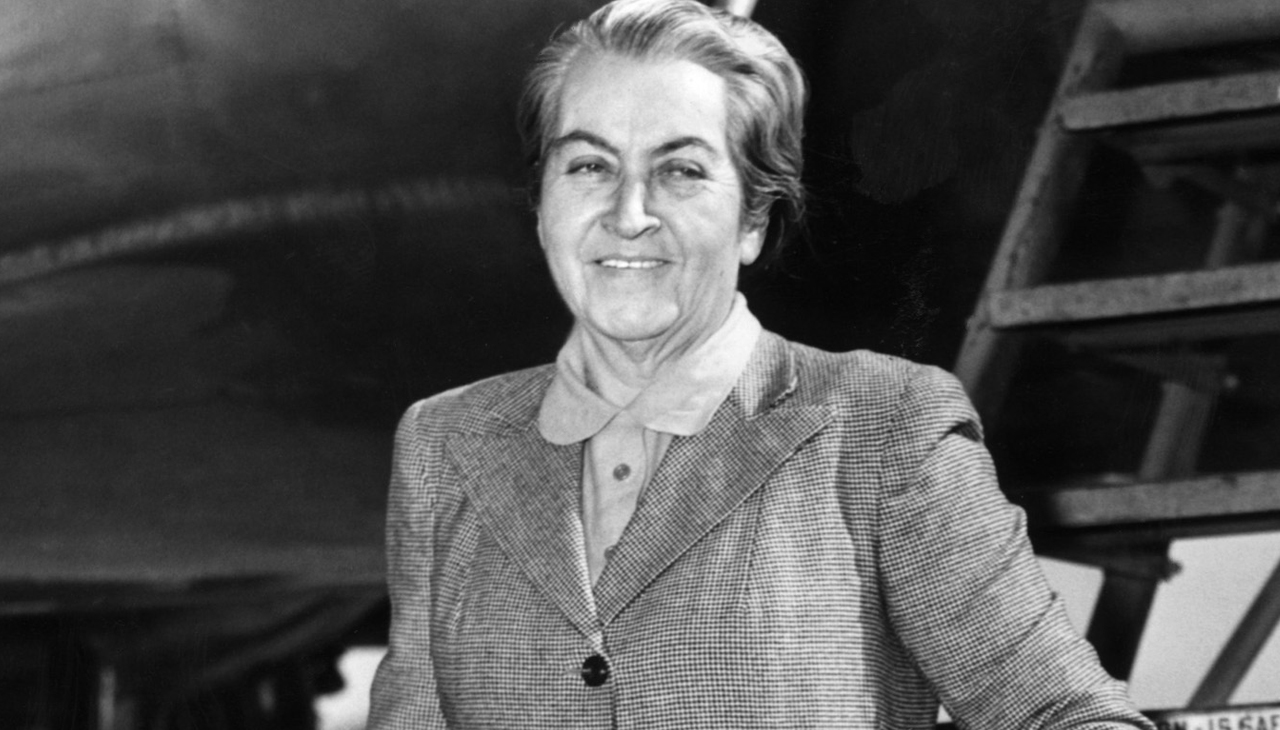
The first latina Nobel laureate
Chilean poet Gabriela Mistral was recognized by the Swedish academy in 1945
[It wanders free in the furrows, it
flaps its wings in the wind,
It’s beating alive in the sun and it clings to the pine trees.
It is useless to forget about it like a bad thought:
You will have to listen to it!]
And the world listened. “Amor, Amor” (“Love, Love”) is one of the most celebrated poems by Gabriela Mistral, the first Latin American author to win a Nobel Prize for Literature in 1945.
Lucila de Maria del Perpetuo Socorro Godoy Alcayaga was her real name, and she took Latin American poetry to great heights from her native Chile. This is her story.
She did not become Gabriela Mistral until 1908 when she used the pseudonym for the first time to publish her poem “Del Pasado” (“From the Past”) in the El Coquimbo newspaper.
She started working as a teacher, and little by little, had her work published in other newspapers such as Penumbras de La Serena or La Voz de Elqui de Vicuña, the area where she was born.
That media opened the doors to Elegancias, a magazine led by Ruben Dario from Paris.
EDUCATION FIRST
At this stage, she started writing her great masterpiece, which would see the light in New York in 1922: Desolación (Desolation). Back then, Mistral was only 33, and more poem anthologies came after, which outlined the themes of her poetry: life, school, childhood, pain and nature.
Her journey was marked by education. After publishing Desolación, the poetess went to live in Mexico to work on the education reform of politician, thinker and writer Jose Vasconcelos.
It was there that she published Lecturas para Mujeres, an anthology of prose poetry for girls and women who did not receive the same academic resources as boys or men. Politics would come later, always from a functional perspective, and driven by reading and education.
RELATED CONTENT
She was the secretary of the League of Nations Committee on Intellectual Cooperation in Geneva, represented Chile and Ecuador at the Congress of the Universities International Federation in Madrid, and worked at the Administrative Council of the Education Cinematography Institute of the League of Nations in Rome.
A FIRST IN LATIN AMERICA
Her career in the United States, Latin America and Spain enriched her poem anthologies. In 1938 came Tala, a poetry book she wrote from Buenos Aires, dedicated to the children suffering as a result of the Spanish Civil War.
Mistral transferred the book’s copyrights to Catalan institutions that sheltered defenceless people. This is one of her most mature works, and one of the most important in Spanish language literature. These were the pillars that earned her the first Nobel Prize in Literature for a Latin American.
In 1945, the Swedish Academy awarded her the prize “for lyric poetry which, inspired by powerful emotions, has made a symbol of her name.” She herself explained in an interview that her nomination was the idea of a writer and friend of hers, Adela Velasco, who wrote to Chile’s president, Pedro Aguirre, and both translated her poems.
In her speech in Sweden, she said: “For my adventurous nature that surpasses me at this moment, I am the direct voice of the poets of my race and the indirect voice of the noble Spanish and Portuguese languages.”
Mistral passed away in 1957, but her verses keep touching the emotions of millions of readers around the world 65 years later.











LEAVE A COMMENT:
Join the discussion! Leave a comment.